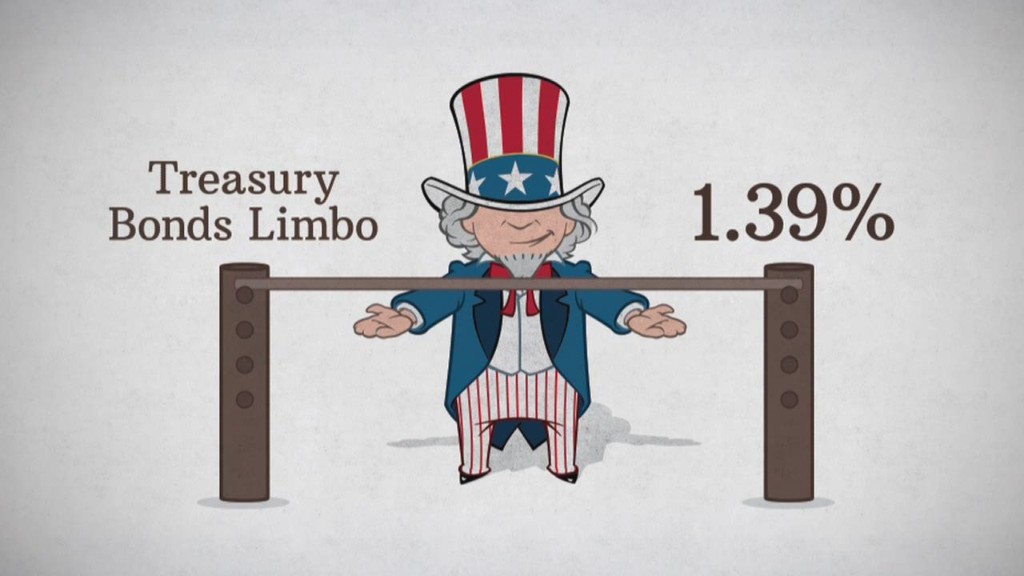
Imagine being in a crowd that's racing for the exit, but the door isn't big enough to let everyone out.
Things would get messy pretty quickly.
That's exactly what some bond investors are worried will happen if panic strikes certain corners of the fixed-income market that lack liquidity.
Known as the lifeblood of financial markets, liquidity measures how easy it is for investors to quickly buy and sell securities. Without it, prices can quickly plunge.
Bond investors are increasingly losing sleep over liquidity concerns. It was the most frequently talked about issue among panelists at ETF.com's Fixed Income Conference this week.
"No matter how inventive we become, there's no way of outmaneuvering the lack of liquidity. We are going to start to see much gappier reactions in the market," Robert Smith, president and chief investment officer at Sage Advisory Services, said at the conference.
Related: Can you protect yourself from a market crash?
While the U.S. Treasury market is extremely deep and liquid, a number of investors expressed concern about the liquidity of the bank loan and high-yield sectors of fixed income.

These riskier areas have become popular places for investors searching for returns in today's world of zero interest rates. But what happens to these investors when they try to swim to safer waters at the first sign of higher interest rates?
"There are a lot of investors swimming out in the deep end of the credit pool without their waders on," said Smith.
The lack of liquidity is being blamed at least partially on tougher regulations that have forced banks to cut the amount of corporate bonds sitting on their balance sheets. That means banks are less able to grease the markets in times of stress.
"We have a very Volckerized Wall Street right now. It's been brought to its knees by regulation," said Smith. He was referring to the Volcker Rule, which has limited the types and amount of securities banks can hold on their books.
Concerns about low liquidity are amplified by the presence of "crowded trades" in which many investors hold the same position.
"We feel a day of reckoning is coming, where the size of the exit door will be highly incompatible with the volume of bonds looking to exit. When that occurs, prices will adjust downwards in a hurry," Nottingham Advisors wrote in a note to clients on Sept. 30.
Related: Oil will tumble to $70, says new 'bond king.'
Rick Rieder, co-head of Americas fixed income at BlackRock, said trades have become more crowded because of the deleveraging process the financial system has undergone since the Great Recession.
That process has caused a drop in the production of new debt at a time when an aging U.S. population is searching for stable income from bonds.
"There are not enough financial assets in the world," said Rieder. "Demand is much bigger than supply."
No matter the cause of low liquidity and crowded trades in the bond markets, Smith said the implications for investors are clear.
"Don't be the last guy in the canoe as it's going over the waterfall," he said.


